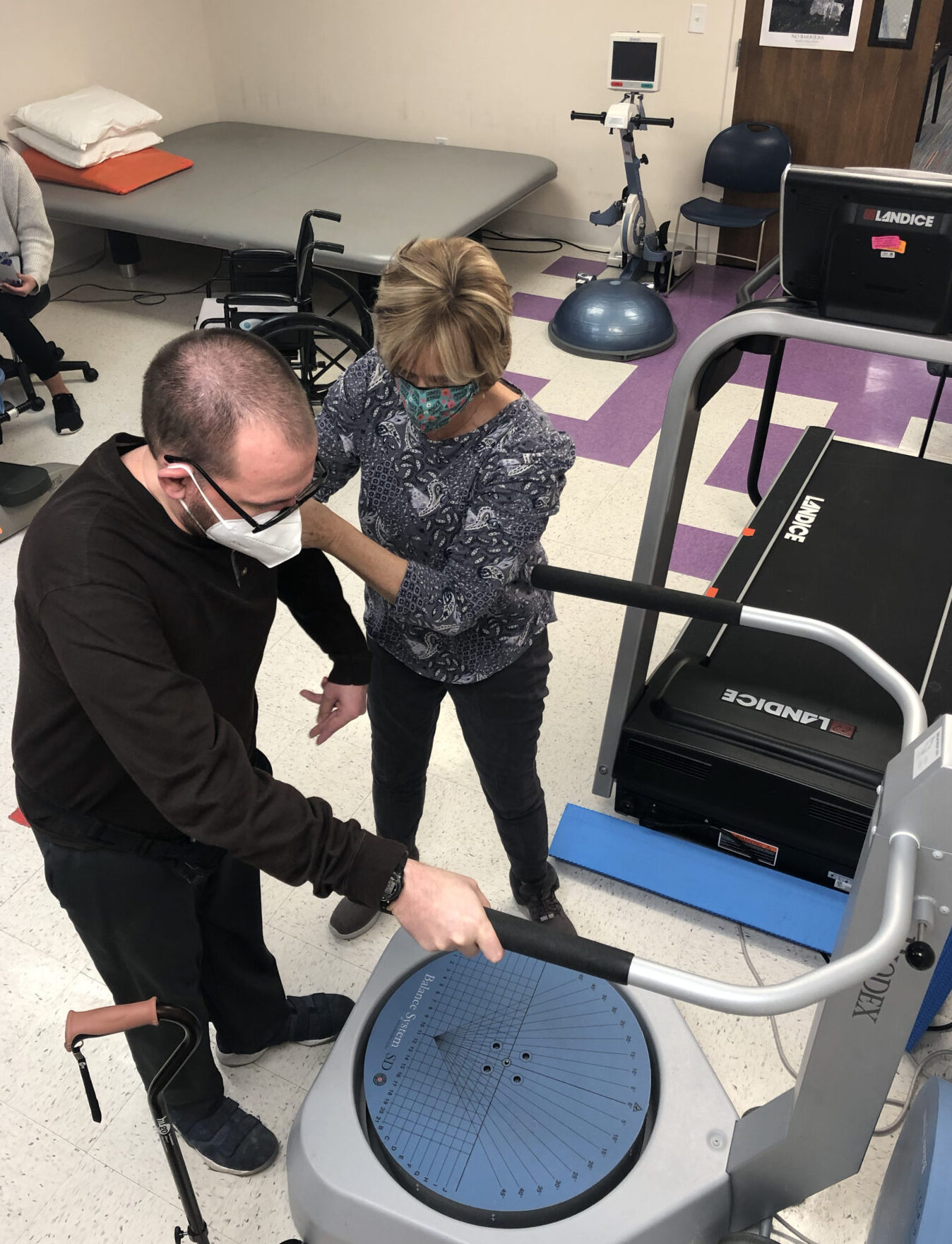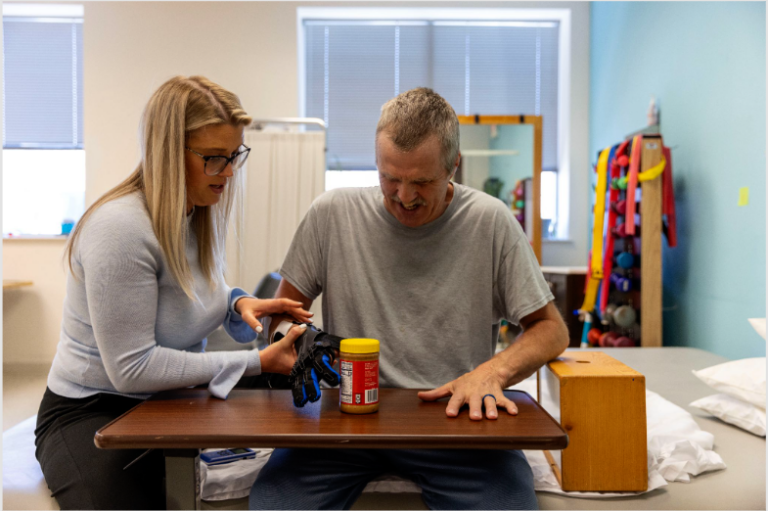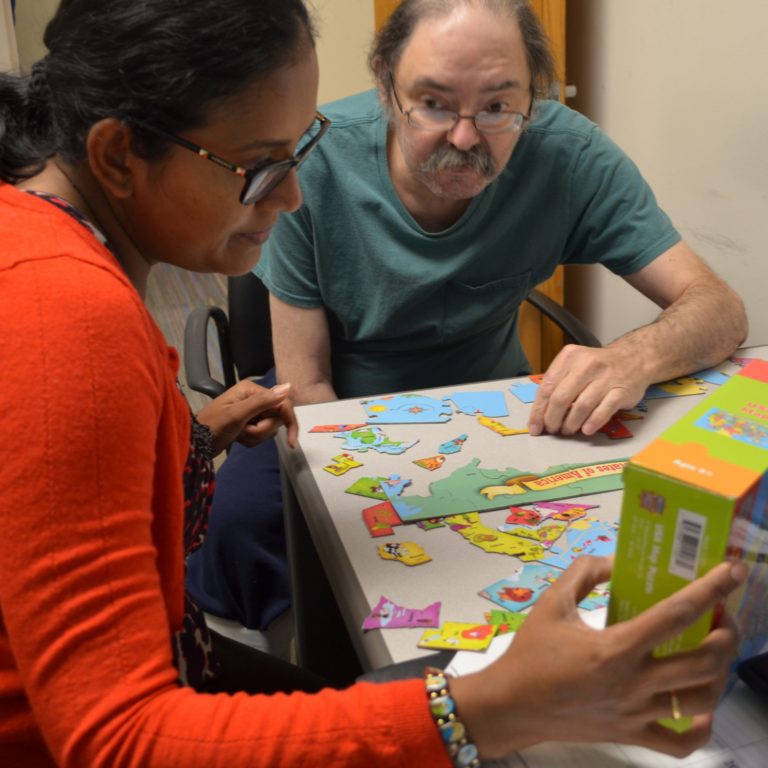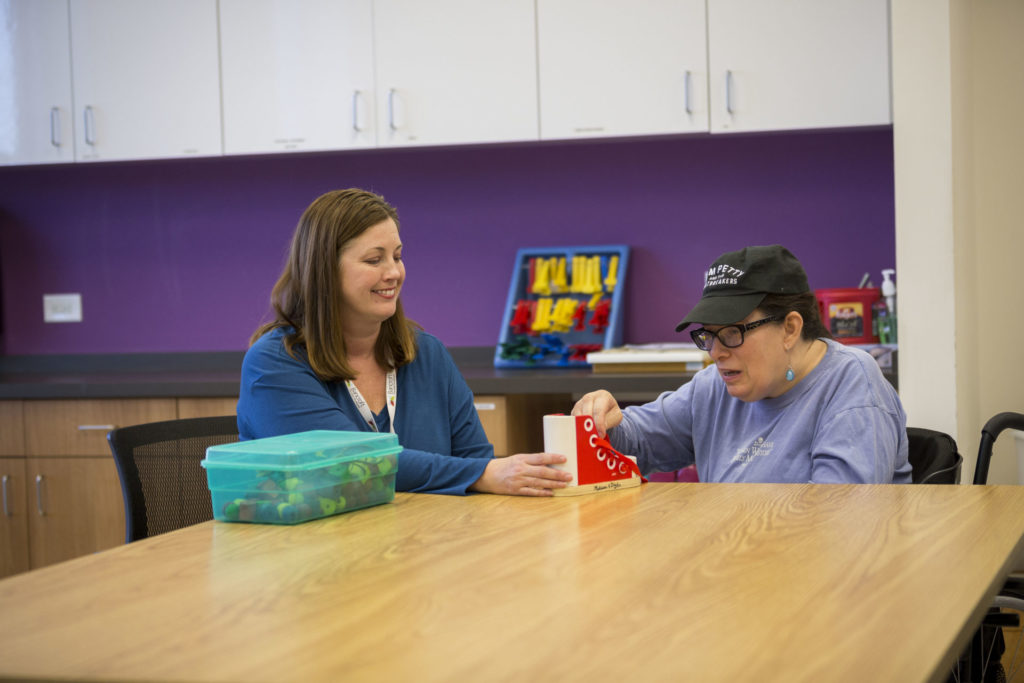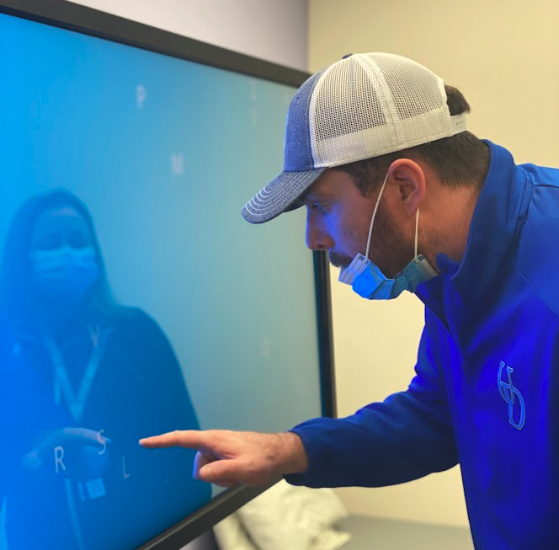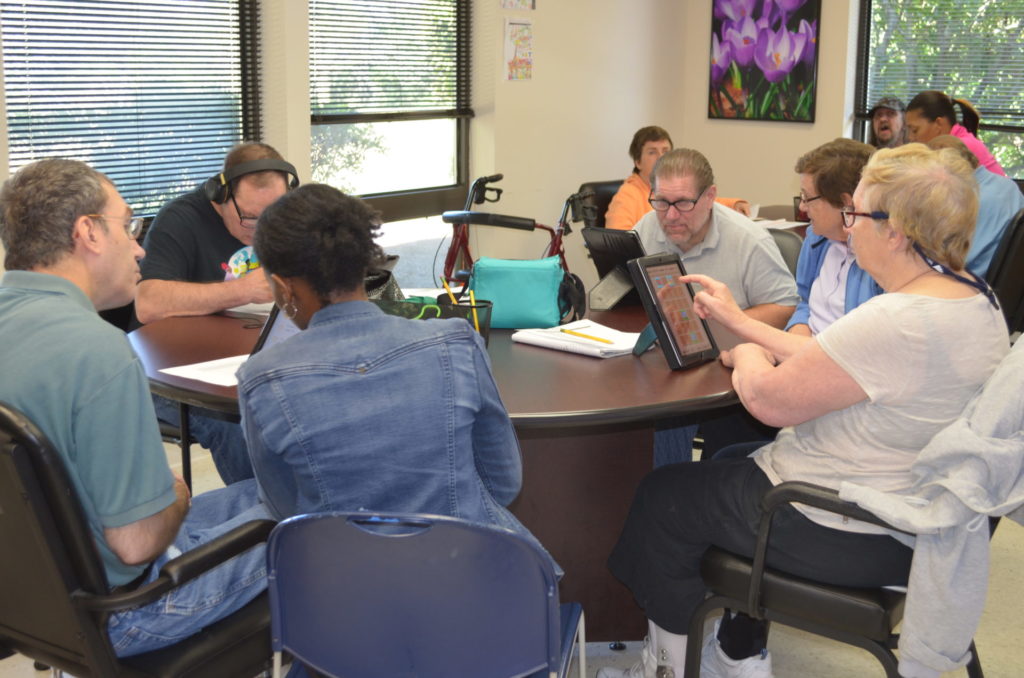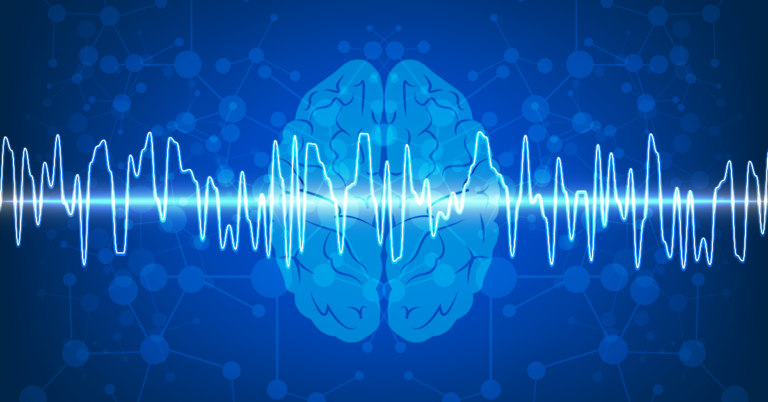

The Role of Rehabilitation in Stroke Recovery
More than 795,000 Americans have a stroke each year, according to the Centers for Disease Control and Prevention – that means a stroke occurs every 40 seconds in the U.S.
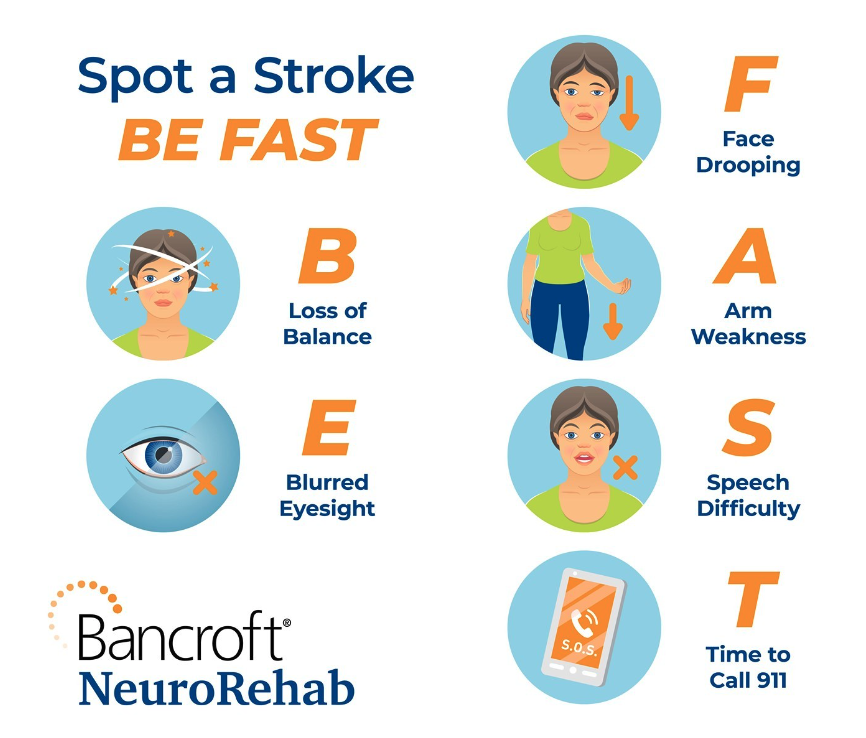

Despite stroke being a leading cause of long-term disability, recovery is possible. Individuals see the most recovery in the first one to two years after a stroke, with more rapid progress occurring in the first three months. Post-stroke rehabilitation is crucial for individuals to address deficits caused by the stroke, maximize their recovery, and maintain independence.
Common challenges stroke survivors may face include:
- Hemiparesis, or weakness on one side of the body
- Decline in cognitive and emotional functioning
- Inability to walk and care for themselves
- Social disability and decrease in community participation
Stroke rehabilitation is a team effort between the individual and the transdisciplinary clinical team who work to achieve mutual goals.
Explore how a rehabilitation team can help identify weaknesses and restore function:
Neuropsychological Evaluations
Neuropsychological evaluations offer a comprehensive assessment of an individual’s cognitive abilities and mood. An evaluation is recommended when an individual shows changes in cognitive, emotional, and functional abilities following a stroke. The evaluation measures several skills and abilities, including:
- Attention and concentration
- Problem-solving
- Learning and memory skills
- Language
- Mood and emotions
- Motor and sensory functions
- Academic and employment skills
The evaluation oftentimes serves as a baseline for diagnosing cognitive functioning and can guide treatment planning and when to return to daily activities – like driving, managing finances, medications, etc.
Physical Therapy
Physical therapy can improve difficulties in overall mobility and balance following a stroke. Specifically, physical therapy can help with:
- Relearning basic coordination skills and retraining your brain to perform functional tasks, like grasping an object while walking.
- Strengthening muscles and improving endurance for activities such as walking, sitting, standing, lying down, and the process of switching between different types of movement.
- Restoring mobility to prevent muscle atrophy.
Occupational Therapy
Occupational therapy helps develop strategies for individuals to increase independence and engage in activities they want and need to do. Occupational therapists help individuals with:
- Managing daily activities – like eating, bathing, cooking, writing, and work modifications.
- Managing visual symptoms, such as blurred vision, double vision, reading difficulty, and sensitivity to light.
- Increasing safety through caregiver education and training, home modifications, and assistive technology training.
- Strategies for community mobility, such as driving and assessments and alternative transportation options.
Speech Therapy
Speech therapy can assist with speech impairment, a common effect of stroke that can also impact cognition. Speech therapists can help with:
- Eating, drinking, and swallowing difficulties
- All aspects of communication that can be impacted by stroke – speaking, reading, word-finding and listening/understanding
- Breathing difficulties
Vocational Rehabilitation
Vocational rehabilitation can help individuals who are interested in returning to work. A vocational program helps develop compensatory strategies needed to secure meaningful employment and ensures individuals are adequately trained and supported throughout transitioning back to the workforce.
Residential Rehabilitation
Residential rehabilitation provides a living solution to help individuals recovering from a stroke regain life skills, overcome day-to-day challenges, and feel empowered to be as independent as possible. In addition, to support provided in the home, individuals can benefit from day treatment programs and outpatient therapies.
If you or a loved one have suffered a stroke and are in need of rehabilitation services, Bancroft NeuroRehab can help. Call 844-234-8387 or contact us.
Related Articles
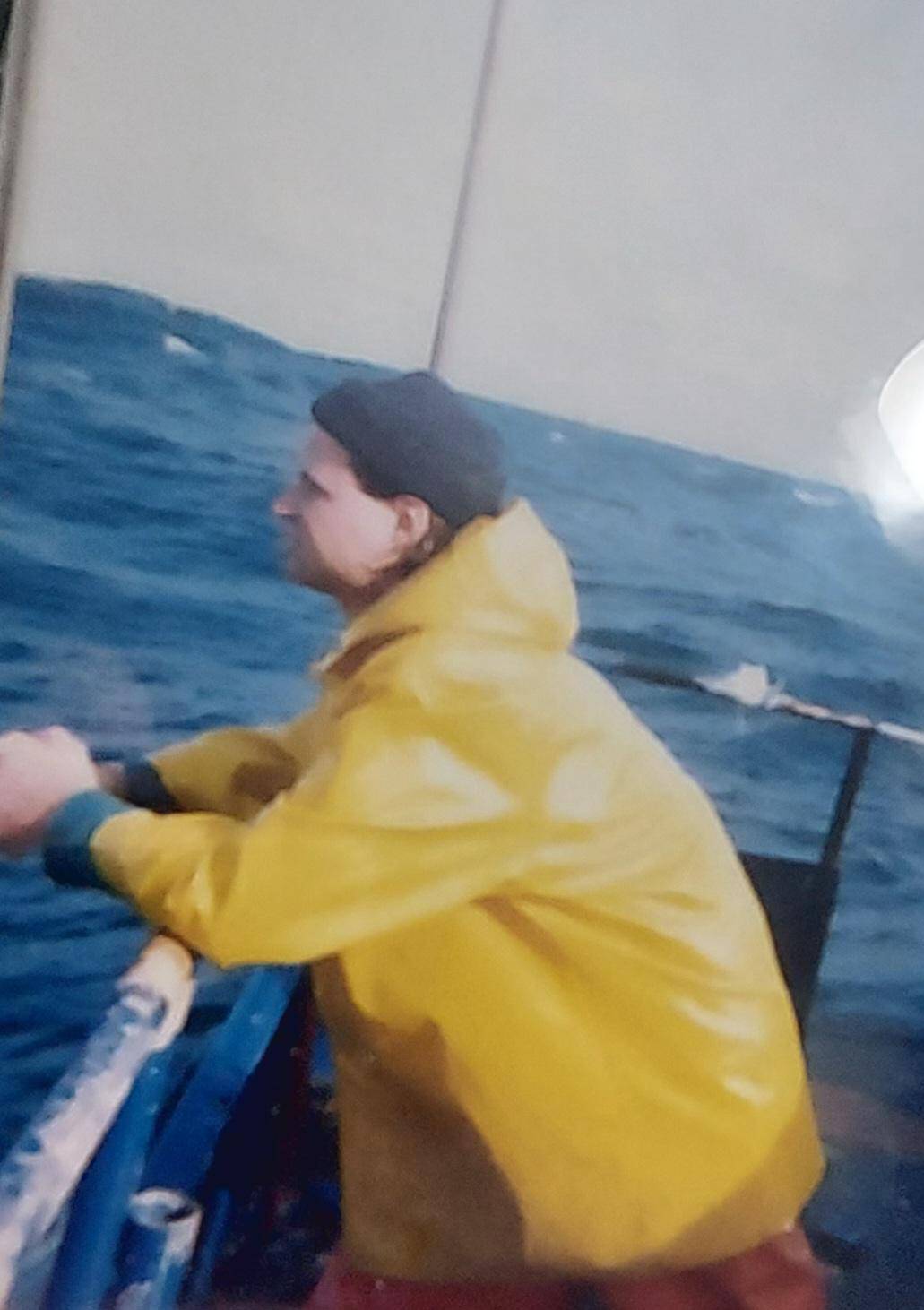

Never Giving Up: How Stephen Reclaimed His Independence After a Traumatic Brain Injury
Never Giving Up: How Stephen Reclaimed His Independence After a
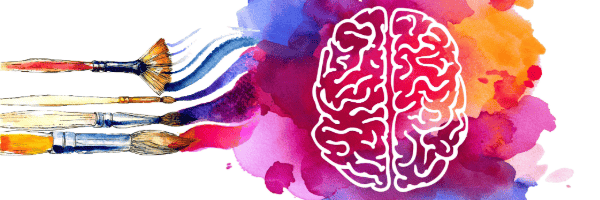

Exploring Creativity in Rehabilitation: Bancroft NeuroRehab’s Mosaic Project
Exploring Creativity in Rehabilitation: Bancroft NeuroRehab’s Mosaic Project Occupational therapy
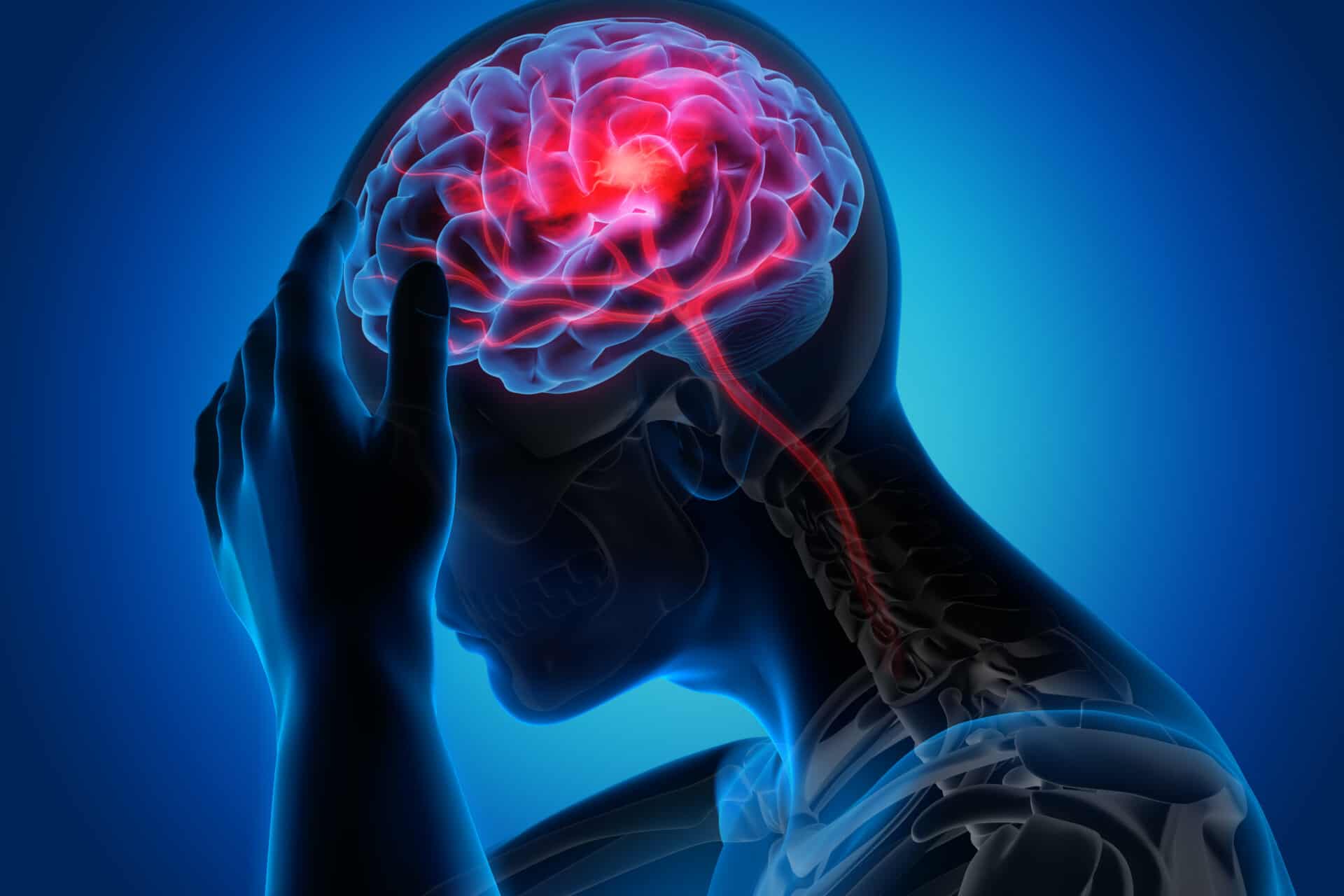

Recognizing and Treating the Psychological Effects of Stroke
Recognizing and Treating the Psychological Effects of Stroke Post-Stroke Rehabilitation



